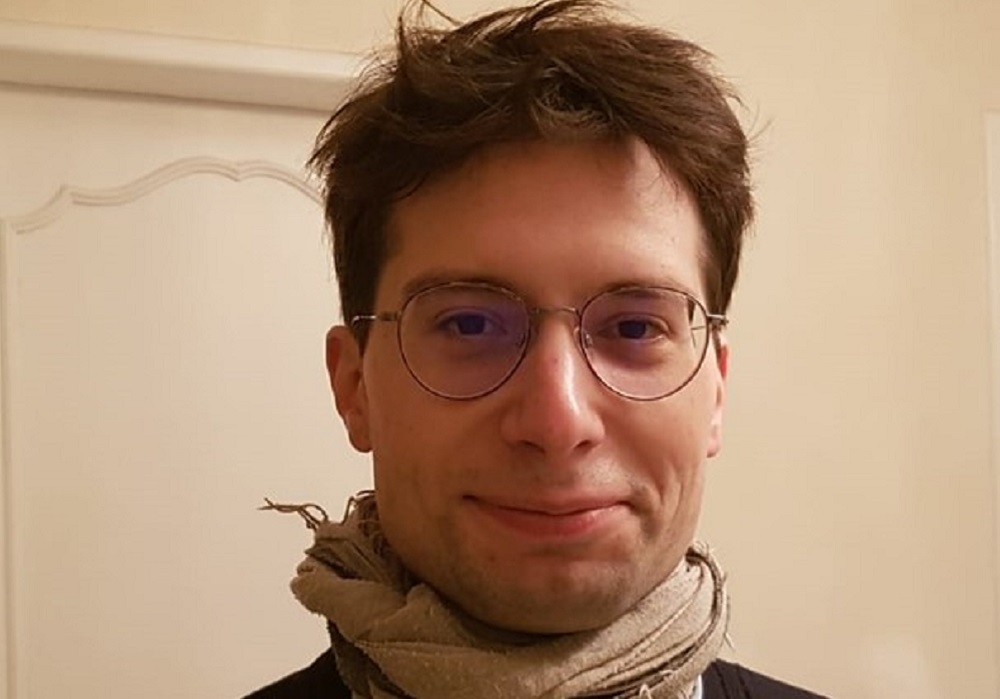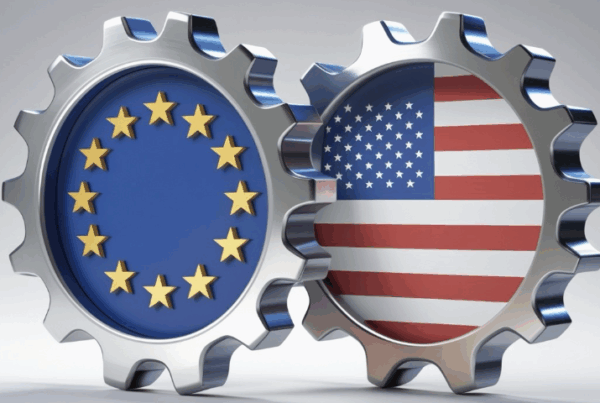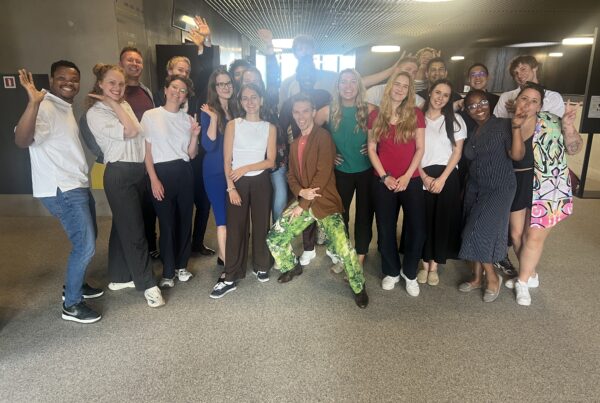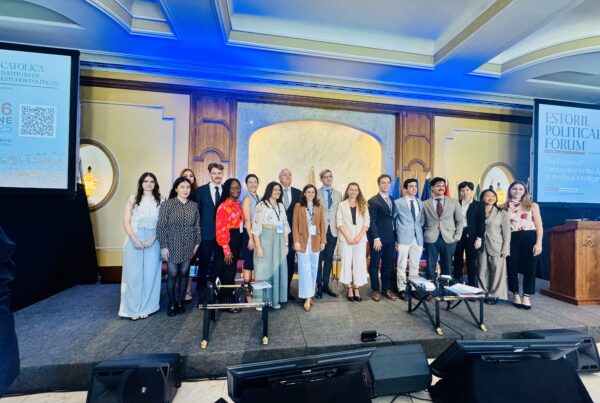
What is the Scholars Programme really like?
We are grateful to Nils Renard from the 2020-21 cohort for sharing his experiences in this interview
Who are you and what is your doctoral research about?
I am a PhD candidate at the Paris 1 Panthéon-Sorbonne University and the Institut d’Histoire moderne et contemporaine (IHMC). I graduated from both Paris 1 and the Ecole Normale Supérieure – Université PSL, and spent some years abroad, in Oxford and in Budapest. I discovered the Europaeum at the beginning of the first year of my doctorate and immediately applied, as it seemed the perfect programme to undertake alongside a PhD.
I work under the supervision of Prof. Jean-Luc Chappey in the fields of the history of science and the French Revolution. My doctoral research brings together environmental history, religious studies and anthropology, from the French Revolution to the beginning of the XIXth century. It focuses on Henri Grégoire (1750 – 1831), who was a famous member of the revolutionary assemblies. He was also a bishop, known in France for his fight for the emancipation of Jews and the abolition of slavery in French colonies and around the world. Together with other intellectual, political and religious leaders, he played a major role in rethinking issues such as the place of man in his environment, the new conception of nature and society, the role of religion in the emancipation of minorities but also the limits of this commitment in a society that was undergoing huge political and social change. These issues lead me to question the intellectual legacy of Grégoire and his network, to see how a certain conception of limits between nature and culture was being reframed at the beginning of a new century. A major aspect was the religious use of nature, and its political conceptualization, as intellectual debates and scientific research were in a constant dialogue with this perception of nature during this period.
What did you do and learn during the Europaeum Scholars Programme?
The Europaeum Scholars Programme offers a tremendous challenge for academics. It brings them into direct contact with the major issues of our time in politics, economics, law, diplomacy, but also in ethics and humanitarianism, as well as the nature of leadership and our relation to others. A Scholar is given an extraordinary opportunity to benefit from a huge variety of experiences, expertise, knowledge and activities. These include lectures and workshops given by high profile politicians, as well as those who implement policy in the daily realities of civic life. The modules bring clarity and in-depth thinking to issues that you might read about in newspapers or study in academic literature without gaining such a comprehensive and concrete understanding. I learned so much, including about big issues such as the rule of law, the building of a more inclusive and democratic society, and the response to major threats, and about concrete matters such as how to fight racism in everyday life. I not only improved my understanding of current issues, but I think I improved morally. The modules encouraged me to think reflexively and engaged me in questions affecting humanity, which became increasingly relevant against the backdrop of the Covid crisis and the ongoing difficulties of its management.
Group work was another major aspect of the programme. Each team identified an issue of concern and together built a policy proposal that would tackle it, assisted by tools and advice from the Europaeum. We were experiencing the real life of a policy maker or adviser. We saw how a policy is in fact extremely complex to create, taking into account its many dimensions so as to avoid a one-sided response. It felt like a significant achievement to be part of a truly international group as it worked through the lengthy process of forming ideas, analysing solutions, sometimes facing crises, in order to present a successful conclusion that was all our own work.
What was your project about and how was the process of working on it?
Our project is called ‘Lost in transition?’, hinting at the movie with a similar title. Our group, consisting of Kateřina Chadmiová, Alex Clark, Joshua Hill, António Leitão Amaro, Chiara Lovotti, Frederik Forrai Ørskov, Christoph Semken, Peeter Vimha and myself, looked at the process of change in the car industry driven by the necessary ‘just transition’ towards sustainability and greener energy. We were particularly concerned with how this change impacted on workers within Europe, as well as on suppliers and others within the industry. The potential outcome could be poverty, marginalisation and social distress, not to mention considerable opposition to a necessary just transition. The solution proposed by the group was the creation of a new European agency, The Automotive Suppliers Transition Agency (ASTA) to support and ease the process. Click to read further details of our project.
The Scholars Programme modules provided regular opportunities to get together and discuss the problems we wanted to solve, to delineate a response to them, and to tackle the inevitable disagreements between ourselves. These ranged from the theoretical starting point to the more concrete details, such as the name of the agency of course! It felt like being a member of an assembly, where we had to vote and decide, and then return to a commission to build a concrete policy project, block by block. There were times when we disagreed dramatically, but we realised we had to go on to find consensus and produce the final policy proposal. It was an extraordinary experience, living the life of a politician or a ministerial team over an extended period. It wasn’t simply problem-solving for a day or two resulting in a demagogic response based on a biased approach; we explored the issue in depth, identifying problems that weren’t initially apparent – or that we didn’t want to see – and being obliged to understand them. We experienced the full and unanticipated complexity of shaping a policy proposal that was balanced and fair for all.
How did you find presenting your project during the ‘Crisis as an opportunity for Europe’ conference in early October?
My team-mate, Peeter Vihma, did the talk itself and made a wonderful job of it. This was, for all of us, a moment of great pride but also of humility and fear. It was amazing to be given such an audience, yet at the same time we felt that, despite all the time dedicated to it, there were still many things to do. You need a great deal of faith, will and energy to defend a policy proposal to leaders in the field and persuade them of its merit. It was an amazing experience to be arguing your point directly with such high profile and knowledgeable people.
Your research sounds rather different from this project. What aspects of the Scholars Programme did you find useful? Would you recommend it to others whose research is so different?
Yes, clearly, my research is very different, both in methods and content. Having said that, my research subject was a political leader who also defended policy proposals, was also committed to big problems of the time such as the building of a new political model, the response to poverty, the inclusion of minorities, the abolition of slavery and the economy based on it, etc, during an intense period, and who also experienced being aware of the limits of any political action. This programme not only taught me so many things about the current world, about myself and about issues that we experience today, it also helped me understand timeless matters such as the limits of political action and the difficulties of leadership: even the best intentions are sometimes limited in their scope to effect change, and in doing so they create new winners and losers. The programme was my anthropological experience to complement my doctoral research. Though different, the two proved harmonious. The programme gave me the opportunity to think differently: as a member of a group; on today’s highly relevant issues rather than the past; and using sources other than the archives. It gave me a mental break from my research, yet when I came back to it, I understood new elements that I had not seen and could take a more comprehensive approach. I also developed an understanding of how past and present issues are sometimes very similar, sometimes radically different, and how notions evolved across centuries. At a time when history is often instrumentalised, it was the best possible experience, and I do recommend it, whatever your background.
There may be candidates who are unsure whether they should sign up. Why do you think they should?
I think they should because such an experience has no comparison. It offers a unique opportunity to transcend the routine of academia and work in international groups, meet high profile speakers, build a long term understanding of the world, and make new friends right across Europe. After two years of hard work and despite the drama of Covid, I have emerged grateful to have been given such a wonderful opportunity.
The Scholars Programme is the flagship programme of the Europaeum. This highly competitive opportunity is taught over two years alongside doctoral studies. It consists of a series of short modules, taking students to member universities across Europe. It offers unrivalled opportunities for career and personal development, and brings a fresh perspective to doctoral studies. Further details of the Scholars Programme can be found on this website.



